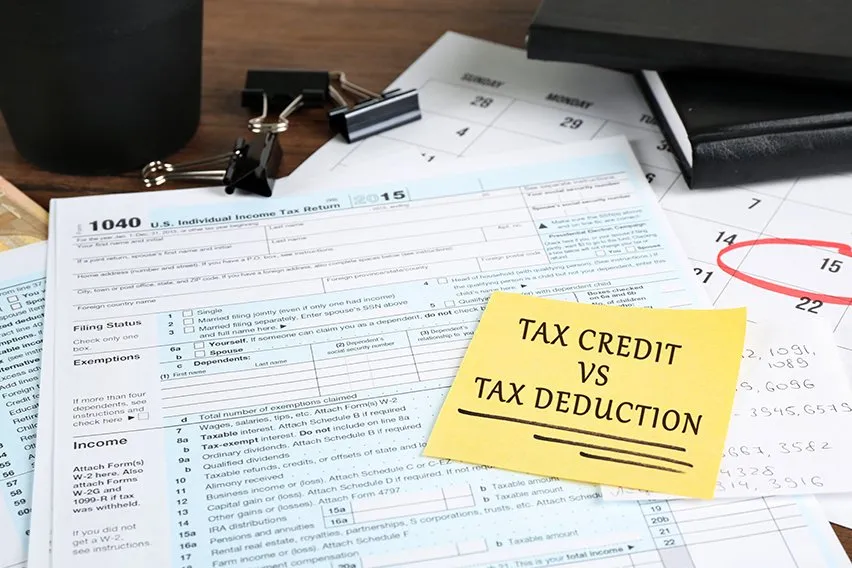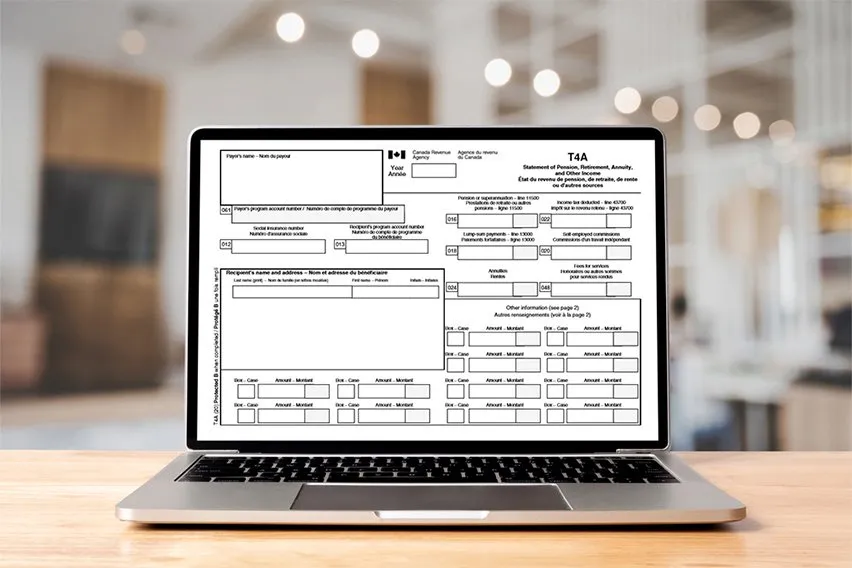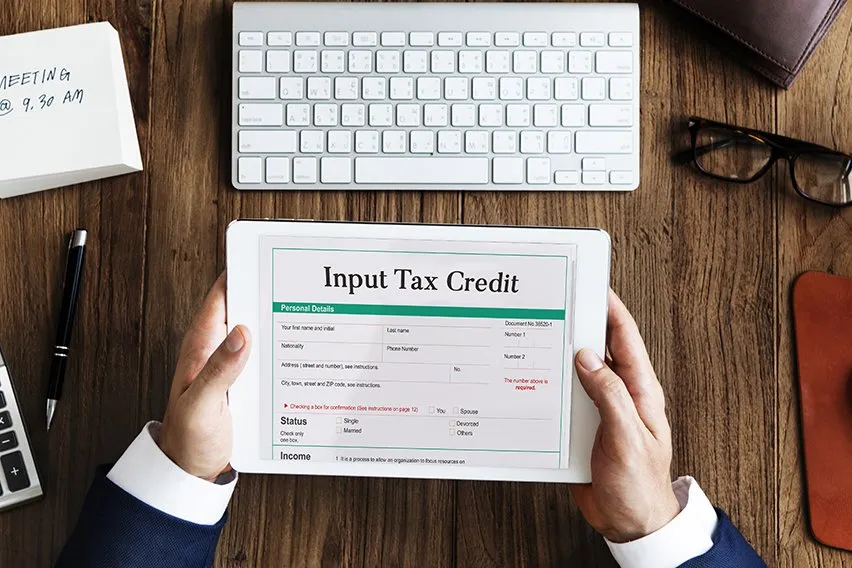17 Medical Expenses Tax Deductions in Canada

There is a common assumption that due to the universal healthcare system, Canadians don’t need to worry about medical costs. This assumption is untrue. Many Canadians have surprisingly steep medical bills, which is why the CRA lets Canadians claim eligible medical expenses as a credit on their taxes.
However, there are also non-eligible medical expenses. For this reason, it’s important for you to do your research on what you can claim for tax credit before claiming medical expenses.
Key Takeaways
- Tax credit only applies to medical expenses not covered by another health insurance plan.
- CRA-Approved Medical Expenses Tax Deduction in Canada
- Medical Expenses Not Eligible for Tax Deduction in Canada
- Simplify Your Tax Preparation with FreshBooks
- FAQs About Medical Expense Tax Deduction in Canada
17 CRA-Approved Medical Expenses Tax Deductions in Canada

1. Prescription Medications
Eligible prescription medications must be prescribed by a licensed practitioner. Over-the-counter medications do not qualify. Prescription supplements also do not qualify, with the exception of Vitamin B12. Medical cannabis may qualify if the patient has valid documentation stating the need and is registered with the licensed seller they’re purchasing from.
2. Medical Services
Eligible medical services vary based on province, so you should consult the Government of Canada website to verify which services qualify in your province. Eligible services may be reimbursed regardless of whether you received the treatment in or out of your home province or Canada. However, the out-of-province or country practitioner must be licensed in their jurisdiction.
3. Service Animals
Costs related to training and caring for a service animal may be eligible for tax credit in some cases. Emotional support and therapy animals do not qualify. Eligible service animals include those for:
- Blindness
- Deafness
- A physical impairment that restricts mobility
- Epilepsy
- Autism
- Diabetes (for expenses incurred after 2013)
- Some psychiatric conditions in cases where the animal is trained to respond to psychiatric incidents, such as a PTSD flashback (for expenses incurred after 2017)
4. Medical Devices and Equipment
Most medical devices are eligible if they are prescribed by a licensed practitioner. Paid assistive devices are only eligible if prescribed. For example, television closed caption decoders purchased out of pocket without a prescription would not qualify, although they would if they were prescribed.
5. Vision Care
Any device that assists with vision correction is eligible for tax credit. This includes glasses, contact lenses, laser eye surgery, and other assistive vision devices such as prescription swimming goggles. The cost of both lenses and frames for glasses is refundable on your income tax return. Medical services to help correct vision, such as regular eye exams, are also claimable expenses.
6. Sexual Reassignment Surgery
Sexual reassignment surgery usually qualifies as a tax-deductible expense in Canada. However, the procedure must be performed by a licensed practitioner or hospital to qualify. You must also prove that the surgery is part of ongoing treatment for gender dysphoria disorder and not for cosmetic reasons. Other forms of gender-affirming care qualify as long as they meet these same qualifications. For instance, laser hair removal as part of gender dysphoria treatment would qualify, but purely cosmetic hair removal would not qualify.
7. Dental Services
Dental services are only eligible if the service is for a medical need. This would include any dental health procedures (such as cleaning or fillings), dentures, and any necessary medications related to a dental procedure. Cosmetic dental procedures do not qualify with the exception of braces.
8. Psychological Services
Psychological services are only eligible if they are recommended by a medical practitioner. If mental functions are severely impacted, you may qualify for the disability tax credit. To qualify, your mental impairment must render you unable to perform everyday tasks or perform them 3 times slower than the average for a person in your age range. This must be an issue 90% of the time for a period longer than 12 months and an impairment that does not improve with the use of psychiatric medication.
9. Nursing Care
Any amount paid for a licensed nurse is an eligible medical expense. This includes home care attendants who help individuals perform needed functions in their everyday lives. Deductible nurse expenses include the nurse’s salary, food preparation, housekeeping, health care, some grooming expenses, transportation, and activities.
10. Travel for Medical Treatment
Travel expenses for medical treatment are only eligible if you traveled further than 40 kilometers to receive treatment. However, you must prove that reasonable treatment was not available any closer to your home to receive a tax credit for the travel expense. You also must show that you chose the most direct route to your location and still exceeded 40 kilometers.
Lodging expenses and accommodation expenses are only deductible if you need to travel more than 80 kilometers for treatment. Proving that there were no reasonable options closer and that you took the most direct route is also required to deduct accommodation expenses for medical travel.
11. Healthcare Premiums
Premiums paid toward a private health services plan may be eligible as long as 90% of the premiums go toward eligible medical expenses as specified by the Canada Revenue Agency. For instance, if ineligible cosmetic procedures take up more than 90% of the cost of your health insurance premiums, paying into those premiums wouldn’t qualify.
12. Fertility Services
Medical expenses paid to help a patient conceive a child are eligible for tax deductions. The service must be performed or overseen by a public or licensed private health centre to qualify. Expenses paid toward a surrogate mother or sperm/ova/embryo donor are eligible if incurred after 2022 and as long as the surrogate/donor is from Canada. An example of such an expense would be paying for medical exams for a surrogate mother. Freezing one’s sperm or ova with the intent of conceiving a child in the future also qualifies for deductions.
13. Mobility Aids
Walking aids, standing devices, wheelchairs, wheelchair carriers, scooters, and crutches are all CRA-allowable medical expenses. Modified vehicles designed to allow a person with physical impairments to drive also qualify with a prescription. 20% of the fees paid for a van used to transport a person in a wheelchair can also be reimbursed. However, this amount has a limit of $5,000, with the exception of Ontario, where the provincial limit is $8,204.
14. Therapeutic Services
The cost of personalized therapy for a person who qualifies for the disability tax credit is eligible. Rehabilitative therapy also qualifies as an eligible medical expense. Therapy must be prescribed and delivered by a licensed psychologist, doctor, or nurse depending on the nature of the mental or physical impairment.
15. Home Renovations
Renovation expenses qualify if the renovations are to increase the mobility of a person in their own home, making them eligible for the home accessibility tax credit. They cannot be done with the expectation that the renovations will increase the value of the property. Examples may include buying and installing wheelchair ramps, lowering cabinets, or enlarging doorways. This applies to costs related to modifying an existing home or building a new house.
16. Certain Education and Training Costs
Some training costs to help an abled person care for a disabled family member may be eligible if the disabled person is unable to function without the family member’s support. Tutoring services for a person with a severe learning disability may also qualify. Tutoring must be in addition to primary schooling and certified as needed by a medical practitioner.
17. Wigs
The cost of purchasing a wig may be eligible for tax credit if the person buying the wig is experiencing abnormal hair loss due to an illness, accident, or medical treatment. A licensed medical professional must verify in writing that the wig is being purchased by a person in this situation.
Don’t miss deducting any of your eligible medical expenses on your next tax return. Watch the video below to see how you can simplify your tax preparation process with FreshBooks.
Medical Expenses Not Eligible for Tax Deduction in Canada
The Canada Revenue Agency specifies non-deductible medical expenses as anything that is not a medical need as verified by a healthcare provider. You also cannot claim medical expenses that are reimbursed by other means.
Non-Prescription Medications
Any over-the-counter medications such as non-prescription painkillers, antacids, or antihistamines do not qualify. This is true even if the non-prescription medication is to help manage a chronic illness or disability. Over-the-counter medications recommended by a physician also do not count without an official prescription.
Cosmetic Surgery
Any form of cosmetic or “plastic” surgery does not qualify if the procedure is purely for cosmetic purposes. There is an exception if the cosmetic surgery was performed under compassionate grounds. For example, prosthetic breasts may qualify for a person who received a mastectomy due to breast cancer treatment.
Health Club Memberships
Health club memberships including gym, fitness, and recreational centres do not qualify as eligible medical expenses. Some services offered at such a facility may qualify in some cases. For instance, physical therapy performed by a licensed physiotherapist at a health club may qualify, depending on the circumstances.
Vitamins and Supplements
With the exception of Vitamin B12, vitamins, and supplements do not qualify as a deductible expense, even if prescribed by a licensed physician. This also includes supplements other than Vitamin B12 that require a prescription to purchase.
Birth Control
Non-prescription contraception is not a qualifying medical expense. However, birth control pills prescribed by a medical practitioner do qualify as a deductible expense. In this situation, the contraceptive medication must be prescribed with the intent of improving the life of someone with a medical condition that can be treated or better managed with birth control pills.
The province of British Columbia recently made birth control free through BC Medical. While this is technically not a tax deduction, it is worth noting as this particular expense may receive more coverage in the future.
Abortion is legal in all Canadian provinces, and historically this was an ineligible medical expense. However, as of March 2023, the Canadian government announced that abortion costs will be partially covered under universal healthcare.
Specialized Food
With the exception of gluten-free food, specialty foods for people with dietary restrictions do not qualify as a deductible expense. This includes organic food, sugar-free food, and allergen-free food. People who wish to claim medical expenses on gluten-free food must provide written proof from a medical professional that they need gluten-free food for a medical condition, such as Celiac disease.
Weight Loss Programs
Weight loss programs are not a tax-deductible expense in Canada. This is true even if weight loss is recommended by medical practitioners. This also applies to weight loss supplements. Many weight loss programs and supplements are unregulated, which is why they cannot be officially claimed for a tax credit.
Cosmetic Dentistry
With the exception of orthodontic procedures like braces and teeth straightening, cosmetic dentistry is not eligible as a deductible expense. This includes teeth whitening, veneers, and dental implant devices that are purely for cosmetic purposes. Eligible orthodontic procedures can be claimed for yourself, your common-law partner, or any dependent child under 18.
Hair Replacement or Removal
Hair replacements and hair transplant surgeries are classified as cosmetic procedures. For this reason, they do not qualify for tax credits. This also applies to hair growth serums or supplements. Hair removal procedures are not usually eligible. However, electrolysis or laser hair removal performed by a licensed medical professional does qualify for the tax credit.
Veterinary Expenses
Tax-deductible medical expenses must be for yourself or a human dependent. Veterinary expenses do not qualify, except in some cases for a service animal. In this case, the service animal is considered a medical necessity for a human, and the animal’s ability to perform is considered part of the human’s healthcare needs. Pet insurance options for non-service animals are available in Canada. However, these are not covered by federal tax under universal healthcare.
Medical Expenses Already Reimbursed
Medical tax credit is intended for unreimbursed medical expenses. Costs that have been reimbursed by other means do not qualify for tax credit. This includes those reimbursed by health insurance premiums, private health services, and employer medical benefits. If your health insurance plan reimbursed only part of your expenses, you may still be eligible for tax credit on the remainder in some situations.
Medical Expenses Claimed in Previous Years
You can only claim expenses for yourself, your spouse or common-law partner, or any dependent children within 12 months of the current tax year. You may claim some expenses from the previous tax year as long as they were not claimed during that tax season. For example, while filing your 2025 tax return, you may only include expenses from 2024 if they were not already claimed on your 2024 return.
Simplify Your Tax Preparation With FreshBooks
Don’t wait for tax time to scramble for receipts and financial records. Stay organized year-round and maximize your small business tax deductions! FreshBooks makes it easy to track expenses, generate financial reports, and prepare for tax season with ease and confidence. Explore how FreshBooks’ multiple features simplify tax preparation and ensure you’re making the most of your eligible deductions.
Sign up for your free trial today to see how much easier filing your income tax return could be. Try FreshBooks free!
Medical costs aren’t the only tax deductions Canadians can claim. Learn more about tax write-offs for small businesses in Canada before you file your next return.

FAQs About Medical Expense Tax Deduction in Canada
All procedures performed for medical or reconstructive purposes and reasonable travel expenses to receive treatment may be covered for you by the Canadian government. Here are the answers to some commonly asked questions about medical-related tax deductions.
What is the medical expenses tax deduction?
The medical expenses tax deduction in Canada is a non-refundable tax credit Canadians can claim on their personal tax return. This credit is called the Medical Expense Tax Credit (METC). Because it is a non-refundable tax credit, you can subtract it from your tax owed as long as it does not bring your balance above 0.
It’s easy to track and calculate your Medical Expense Tax Credit (METC) with FreshBooks. Our accounting software lets you easily track all of your expenses in one centralized location to give you a clear picture of what you may receive from your medical expense tax credit.
Are medical expenses tax deductible in Canada?
Most medical expenses are tax deductible or covered by universal healthcare in Canada. Exceptions include cosmetic, veterinary, and non-prescription services. These services may still be covered in some cases.
FreshBooks can help you keep track of all your tax deductible medical costs. This way, you won’t forget to claim anything you’re entitled to at the end of this tax year.
How much medical expense can I claim on my taxes?
The maximum amount of medical expenses for tax deduction in Canada is either 3% of your net income or $2,479, whichever is lower. For example, if 3% of your net income is $1,200, you can claim $1,200, but if 3% of your net income is $3,000, you can only claim $2,479.
Can I carry over medical expenses for taxes?
You can carry over medical expenses for taxes if they were incurred within 12 months of the end of the current tax year. However, you need to be sure that they were not claimed by you or anyone else in the previous tax season before adding them to your current return. By tracking claims with FreshBooks, you can be sure that you’re not repeating claims this tax season.
Do I have to attach medical receipts to my tax return?
You will need to attach your medical receipts to your tax return if you’re filing your return on paper. If you’re filing electronically, you should keep your receipts but you won’t need to attach them.
To keep your records organized, you can store financial data on your medical receipts using FreshBooks. This will help you easily retain records of all eligible medical expenses for tax deductions.
How do you calculate medical expense tax deductions?
First, determine whether 3% of your net income is lower than $2,479. Then, take the lowest marginal tax rate in your province plus the federal tax rate and multiply it by the minimum threshold. Here’s how that will look as a formula:
- Medical Expenses – 3% or $2,479 = X
- X (Provincial Rate + 0.15) = Medical Expense Tax Credit
Note: 0.15 was chosen because 15% is the lowest marginal tax rate at the federal government level.
Is it worth claiming medical expenses on taxes in Canada?
Whether claiming medical expenses on Canadian taxes is “worth it” depends on individual circumstances. The Medical Expense Tax Credit (METC) is non-refundable, meaning it reduces tax payable but doesn’t provide a direct refund. You can only claim expenses exceeding the lesser of 3% of your net income or a set dollar amount. Significant medical expenses, like prescription medications or dental work, are more likely to surpass this threshold and yield tax benefits. Lower-income individuals often benefit more, and meticulous record-keeping is crucial. While the impact varies, it’s generally advisable to track medical expenses in Canada, as they can contribute to tax savings, particularly for those with substantial healthcare needs.
More Useful Resources
Reviewed by
Kristen Slavin is a CPA with 16 years of experience, specializing in accounting, bookkeeping, and tax services for small businesses. A member of the CPA Association of BC, she also holds a Master’s Degree in Business Administration from Simon Fraser University. In her spare time, Kristen enjoys camping, hiking, and road tripping with her husband and two children. In 2022 Kristen founded K10 Accounting. The firm offers bookkeeping and accounting services for business and personal needs, as well as ERP consulting and audit assistance.
RELATED ARTICLES


 Tax Credit Vs Tax Deduction: What’s the Difference?
Tax Credit Vs Tax Deduction: What’s the Difference? T4 vs T4A Tax Form: What’s the Difference?
T4 vs T4A Tax Form: What’s the Difference? What Is an ITC (Input Tax Credit) for Claiming GST/HST?
What Is an ITC (Input Tax Credit) for Claiming GST/HST? EBIT vs EBITDA: What’s the Difference?
EBIT vs EBITDA: What’s the Difference? TD1 Form: Learn Everything You Need To Know
TD1 Form: Learn Everything You Need To Know What Is a GST/HST Return?
What Is a GST/HST Return?